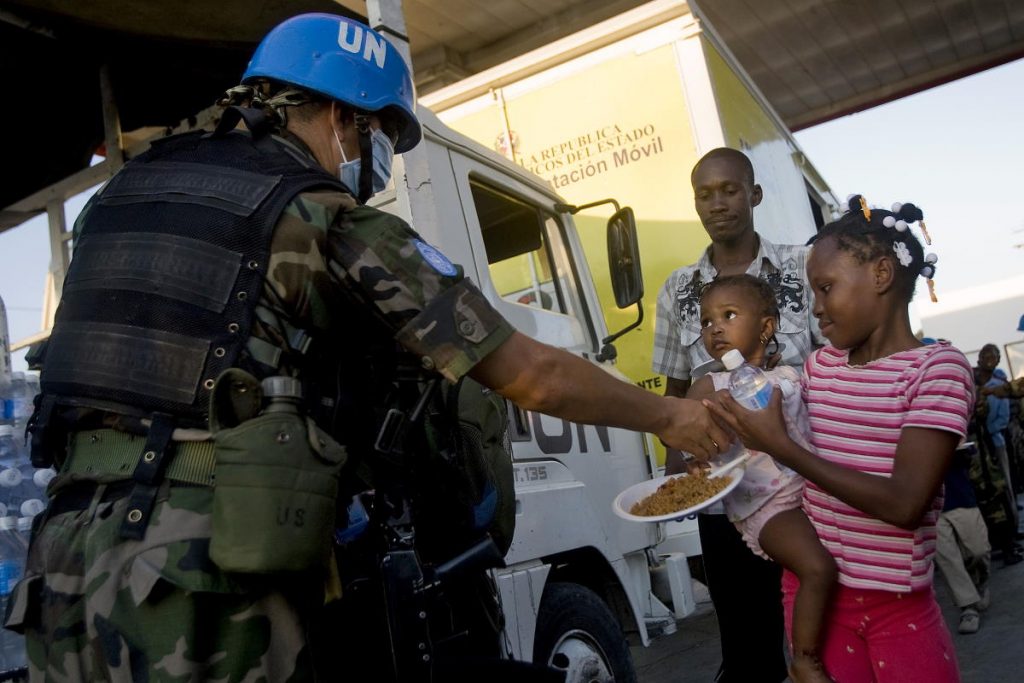How can peacekeepers use research about the effectiveness of peacekeeping operations to make their missions more effective? What kind of knowledge can we generate about the effectiveness of peacekeeping operations, and is it possible to predict if peacekeeping operations will be successful?
This news piece shares some of the insights from a roundtable discussion organized by the Effectiveness of Peace Operations Network on 26 June, as part of the 2020 Annual Meeting of the Academic Council on the United Nations System (ACUNS).
As conditions on the ground are constantly changing, UN peace operations need to reflect and adapt to local conditions. Part of this challenge is to understand how to meet the different needs of different local communities. This is a difficult task, as it requires both practical and normative considerations on how UN operations should adapt to changing circumstances on the ground, but an important step in this process is to include current research findings into the peacekeeping missions’ work.
Bridging the gap between scholars and practitioners
There is vast literature on the effectiveness of peace operations. However, as Richard Caplan pointed out during the panel, there is a continuous challenge to provide practitioners with relevant findings from scholarship, and to integrate these findings into the peace operations’ design and execution. Consequently, there is a gap between scholars and practitioners, and a need to find ways to improve communications between the two communities. However, Andrea Ruggeri highlighted a problematic issue – that there is no structured way of sharing academic data and results among scholars, practitioners, and policymakers.
Qualitative approaches have for a long time dominated research about international peacekeeping operations. Several qualitative studies, including EPON’s own, have found that peacekeeping missions have been effective in preventing large-scale conflict. In recent years, there has also been an increase of quantitative research into the effectiveness of peace operations, however as Jessica di Salvatore highlighted during the panel, the benchmarks on how to measure effectiveness quantitatively differ greatly. She also pointed out that the question of whether and how the benchmarks are relevant for practitioners and policymakers seems to be missing from many quantitative studies. In addition, the research findings are not easy to implement. For example, the argument that a high number of troops increase the effectiveness of a peace operation seems straightforward; however, it is not always easy to ensure a high level of deployment, as this depends on the domestic politics of the troop-contributing countries. A more relevant question for policymakers is, therefore, how we can create incentives to increase the number of troops, or what motivates countries to contribute. In order to answer such questions, the panel emphasized the need for research with both qualitative and quantitative features.
Peacekeeping does work
The panel also discussed whether it is possible to predict if a peacekeeping mission will succeed. Predicting the future is difficult, but Lise Howard argued that three factors are necessary but not sufficient for success in peacekeeping: (1) cooperation among the permanent five members of the UN Security Council, (2) willingness of the parties to work together for peace, and (3) field-level adaptation and learning in the UN peacekeeping mission. When evaluating existing and future peace operations, practitioners and policymakers need to understand the external factors which may jeopardize the process and they must be sensitive to the context of the specific peace operation.
The media often focus on the negative events and happenings in UN peacekeeping missions, but as Lise Morjé Howard pointed out, alongside this picture there are more than 14 peer-reviewed quantitative studies, including many by our co-panelists, which show a different picture. These studies demonstrate that peacekeepers do save civilian lives. Furthermore, quantitative data show that peacekeeping missions also prevent the recurrence of civil war, reduce the spread of conflict over borders, increase civil society activity, and help build institutions. Peacekeeping missions are not perfect, but they do make a difference, and this may be evidenced by quantitative studies as well qualitative studies.
Currently, UN peacekeeping missions are facing several new challenges. Peacekeeping missions are struggling with the COVID-19 situation, and the possible following economic recession. This makes it even more important to close the gap between scholars and practitioners, in order to exploit existing knowledge and help peacekeeping missions evolve.
A thank you to the panelists, and ACUNS for convening this session. The panel was chaired by Dr Cedric de Coning, Senior Research Fellow, NUPI and ACCORD, and was composed by:
- Richard Caplan, Professor of International Relations, University of Oxford;
- Jessica di Salvatore, Associate Professor, University of Warwick;
- Lise Howard, Professor of Government, Georgetown University; and
- Andrea Ruggeri, Professor of Political Science and International Relations, University of Oxford.
Further readings:
- On UN operations and COVID-19: https://effectivepeaceops.net/blog/the-impact-of-covid-19-on-the-performance-of-peace-operations/
- The Effectiveness of Peace Operations Network.
- Vincenzo Bove, Chiara Ruffa & Andrea Ruggeri (2020). Composing Peace: Mission Composition in UN Peacekeeping. Oxford University Press.
- Richard Caplan (2019). Measuring Peace. Principles, Practices, and Politics. Oxford University Press.
- Cedric de Coning (2018). Adaptive Peacebuilding. International Affairs, Volume 94, Issue 2, March 2018, Pages 301–317.
- Lise Morjé Howard (2008). UN Peacekeeping in Civil Wars. Cambridge University Press.
- Lise Morjé Howard (2019). Power in Peacekeeping. Cambridge University Press.
- Jessica di Salvatore & Andrea Ruggeri (2020). The Withdrawal of UN Peace Operations and State Capacity: Descriptive Trends and Research Challenges,International Peacekeeping, 27(1), 12-21, DOI: 10.1080/13533312.2019.1710368
- Jessica Di Salvatore. (2019). Peacekeepers against Criminal Violence—Unintended Effects of Peacekeeping Operations? American Journal of Political Science, 63(4), 840-858. https://doi.org/10.1111/ajps.12451
- Jessica Di Salvatore, Margherita Belgioioso and Jonathan Pinckney (2020). Tangled Up in Blue: The Effect of UN Peacekeeping on Nonviolent Protests in Post-Civil War Countries. International Studies Quarterly. DOI: 10.1093/isq/sqaa015
